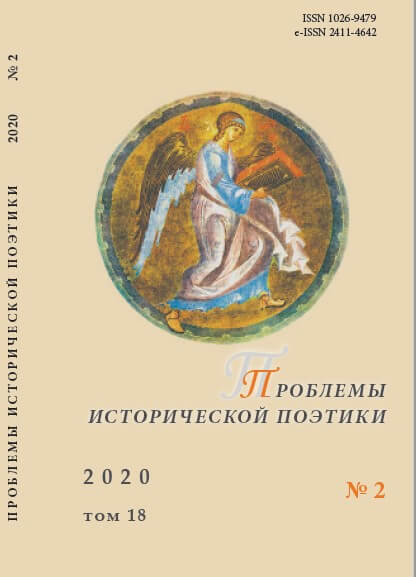Святоотеческое «учение о прилоге» в романе Ф. М. Достоевского «Преступление и наказание»
The Patristic Doctrine About Prilog in the Novel of Fedor Dostoevsky Crime and Punishment
Author(s): Alexander Nikolaevich UzhankovSubject(s): Christian Theology and Religion, Russian Literature, Theory of Literature
Published by: Петрозаводский государственный университет
Keywords: teaching of prilog (the beginning of a thought); thought; passion; development of sin; artistic image; spiritual basis of an image; Dostoevsky; Raskolnikov; Crime and Punishment;
Summary/Abstract: The article considers the influence of the patristic doctrine about prilog (the beginning of a thought) on formation of the psychological image of Rodion Raskolnikov in the novel of F. M. Dostoevsky Crime and Punishment. According to the teachings of Christian theologians, any sin begins with an intention (thought), a person establishes the conversation with, a union with the thought, which gradually becomes an irresistible desire. Being captivated by this thought, the person falls from grace (passion). Rodion Raskolnikov went through all these five stages in the development of sin. Initially, he had the idea to kill an old moneylender, that strengthened after he had overheard the conversation between a student and an officer in a tavern. Thereby, Raskolnikov constantly recured to his sinful thought. Having mentally prepared himself for the murder, he was preparing for its implementation: he searches for an ax, sews on a loop, studies the route to the old woman’s house, and commits the murder. An unrepentant sin entails even greater sins — a double murder. And only through suffering the main character can endure the transformation and return to people.
Journal: Проблемы исторической поэтики
- Issue Year: 18/2020
- Issue No: 2
- Page Range: 172-189
- Page Count: 18
- Language: Russian

